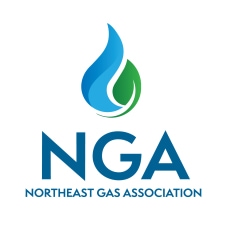PSMS Lessons Learned - Documentation & Record Keeping / Institutional Knowledge - February 2025
Documentation & Record Keeping / Institutional Knowledge
Documentation & Record Keeping and Institutional Knowledge are both crucial facets of managing information and operations within an organization, but they focus on different aspects of how knowledge is created, stored, and used.
Documentation & Record Keeping involves systematically recording and managing official documents, reports, and data essential to an organization’s activities. It ensures a permanent record of decisions, processes, and transactions, often for legal or regulatory compliance.
Institutional Knowledge is the collective expertise, experience, and understanding within an organization, usually informal and not always recorded. It helps the organization run smoothly by sharing insights and problem-solving methods among employees.
While they are different, documentation & record keeping and institutional knowledge can support and reinforce each other. Well-documented records can preserve important institutional knowledge and serve as a foundation for building and transferring expertise. Conversely, having a strong culture of institutional knowledge sharing can ensure that employees know how to interpret and apply the documented information effectively.
Description of Event:
A Supervisor was called to a third-party damage of a 4-inch plastic main, however there was no record of the main. GIS Mapping indicated a 2-inch main feeding two houses on the street. Thanks to the knowledge of long-time employees, it was realized that in 2013, the 4-inch main had been installed and the 2-inch main had been retired. The third-party Contractor working on a water main replacement project exposed the 2-inch retired main and thought they were clear to excavate. A historical record of the 2013 work was completed but was never submitted to mapping.
Root Cause(s):
Failure to submit historical documentation in accordance with policy.
- Root Cause: Management System – Standards, Procedures, Administrative Controls (SPAC) Not Used – Accountability Needs Improvement
Key Corrective Actions:
Reinforce the importance of submitting historical documentation in accordance with policy with clerks at the yard which this incident originated from.
Key Lessons Learned:
API 1173 Element 10 - Effective Documentation and Record Keeping is essential in the Pipeline Safety improvement process. It is critical that technical and operational work products (including historical drawings) are documented and retrievable when needed.
API RP 1173 also emphasizes the importance of institutional knowledge as a layer of protection within its framework. The recommended practice outlines a comprehensive approach to pipeline safety management, highlighting the need for organizations to leverage their collective expertise and experience. This approach fosters a learning environment that promotes continuous improvement in pipeline safety and integrity.
In summary, documentation & record-keeping focus on preserving a formal, accurate history of organizational activities, while institutional knowledge emphasizes the shared, lived experience and expertise that enables the organization to function effectively.

